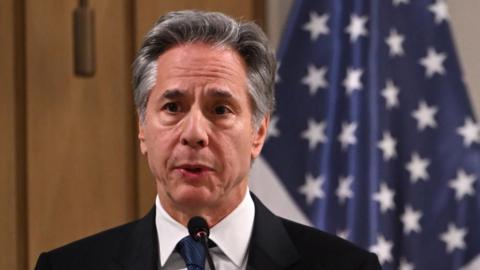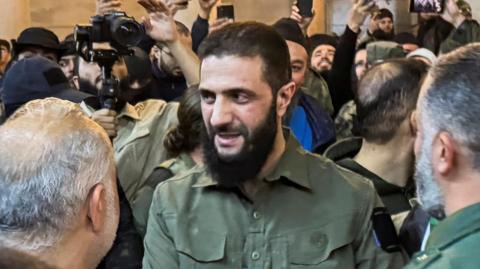Meanwhile, Israel has launched dozens more air strikes against Syria, according to a war monitor, despite regional condemnation.
Israel has previously said it was taking action to "destroy strategic capabilities" that threaten it.
The UN Secretary General has said he is "particularly concerned" about the hundreds of Israeli airstrikes on several locations in Syria.
HTS, Syria's most powerful rebel group, was set up under a different name, Jabhat al-Nusra, in 2011 as a direct al-Qaeda affiliate. It was considered to be one of the most effective and deadly groups opposing President Assad.
It was proscribed as a terrorist group by the UN, the US, Turkey, and other countries - and currently remains so.
Its leader Ahmed al-Sharaa, who previously used the name Abu Mohammed al-Jolani, cut ties with al-Qaeda in 2016. He has recently pledged tolerance for different religious groups and communities.
But the group's violent jihadist past has left some doubting whether it will live up to such promises.
Missing from the talks in Jordan was any representative from Syria. The foreign ministers from eight Arab countries who did attend the meeting said they wanted to ensure that Syria was unified and not split along sectarian lines.
Also absent were the two countries that gave financial support to Assad which enabled him to survive in power for so long - Iran and Russia.
Assad's downfall followed a 13-year civil war, which started after he crushed pro-democracy protests. The fighting killed more than half a million people, displaced millions more, and embroiled international powers and their proxies.
The shadow of all the outside forces that battled over Syria for so long hangs heavy over its future.
Syria's next leaders will need cohesion not just inside the country but outside, too, if there is to be any real hope for the Syrian people to build on the freedom they have experienced in the past week.

